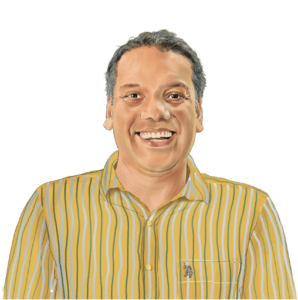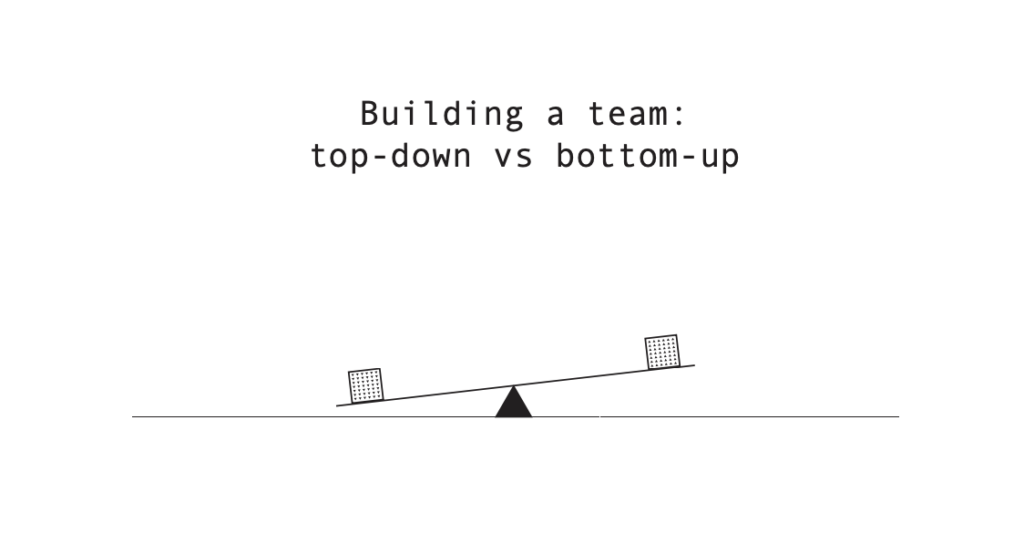UMANG JAIN
Leaving my 9-to-5 job and joining a startup founded by my friends was probably the most significant decision I made in my career and the most impulsive one (Umang took a 90 per cent pay cut and joined Arpit Jain and team on their startup journey). This certainly doesn’t inspire a lot of confidence in my decision-making abilities (laughs). But it wasn’t about joining the company or the product; it was about joining a bunch of people I had immense faith in, in terms of their capability and my unshakeable trust in who they were as people. If you are fresh out of college and get an opportunity to work with friends, why wouldn’t you grab that chance? Also, as I saw it, it was a unique opportunity, a crack at doing something that would be out of the ordinary.
ANAND JAIN
The three of us didn’t have a written word when we started out. A lot of it was, let’s find the starting point, and a lot of conversation around that time, on what is your personal time horizon, what are your personal objectives and goals, how are we going to fight. Sunil and I fight all the time, but it is not taken at a personal level. He is not trying to abuse me, and I am not trying to abuse him. We are both passionate about CleverTap and want to make an impact via our product and work. Our fights are like: if you were to wander into our Zoom call you would be like what the hell is going on? This company is done. It is all going to break up tomorrow morning. But if you are aligned, and when I say aligned, it means if your time horizon is aligned, like maybe Sunil was looking for a quick exit in three years, build it, flip it, and I was like, we will build a company that will [have an] IPO, then there is a mismatch. I have seen, I speak to many founders; it is not about what you are going to build. It is about the timeline and where you are in your personal stage of life.
THE THREE OF US DIDN’T HAVE A WRITTEN WORD WHEN WE STARTED OUT. A LOT OF IT WAS, LET’S FIND THE STARTING POINT, AND A LOT OF CONVERSATION AROUND THAT TIME, ON WHAT IS YOUR PERSONAL TIME HORIZON, WHAT ARE YOUR PERSONAL OBJECTIVES AND GOALS, HOW ARE WE GOING TO FIGHT.
— ANAND JAIN

If I had a 20-year-old co-founder and the other founder was in a different stage of life, now that also plays out very, very differently. That has to be harmonious. It is like getting married. You have to align shared objectives, and regarding the written word, I have seen some bad cases. Burrp was a terrible case, not with Deap, but we had three other founders. We started with five founders, and a lesson learned in my previous startup, that whether you have the written word or not, it is, like, you would never take your customer to court. By the time that happens, it is bad. It is not about can I recover my money; it is like this relationship, you have burnt the bridge, they will never come back, and we will never go back to them. Things should not come to that.
PARAS CHOPRA
I genuinely believe that I get much better ideas when I talk to Sparsh. I actively look forward to Sparsh’s inputs and Sparsh’s disagreements—rather than just agreement—to ensure that I am not stuck in some cognitive bias. I don’t remember having any discussion where we ended up at opposite ends of the spectrum. We both believe that two rational people—if they are discussing data, logic, and first-principle thinking— should be able to agree to a common answer. That is what worked for us.
SPARSH GUPTA
In my experience, friendship and mutual respect are the most critical aspects as they enable openness between the co-founders. Paras [Chopra, co-founder] and I have had countless disagreements in the last eleven years, but our mutual respect made us listen to each other and have an open debate.
I DON’T REMEMBER HAVING ANY DISCUSSION WHERE WE ENDED UP AT OPPOSITE ENDS OF THE SPECTRUM. WE BOTH BELIEVE THAT TWO RATIONAL PEOPLE—IF THEY ARE DISCUSSING DATA, LOGIC, AND FIRST-PRINCIPLE THINKING— SHOULD BE ABLE TO AGREE TO A COMMON ANSWER. THAT IS WHAT WORKED FOR US.
— PARAS CHOPRA

I can confidently say that after every discussion, we both truly believed that our ideas got groomed and what we arrived at eventually was something much better than what individually one of us could have thought. Having done that repeatedly over the years—we were friends six years before Wingify started, which also helped—it just reinforced that some of these disagreements and discussions really help you to grow the business and evolve as an individual. We both continue to discuss all our ideas, however small/stupid they might be. The absence of any ego—because of the friendship we share— and trust in each other’s expertise ensures we keep advancing always.
I CAN CONFIDENTLY SAY THAT AFTER EVERY DISCUSSION, WE BOTH TRULY BELIEVED THAT OUR IDEAS GOT GROOMED AND WHAT WE ARRIVED AT EVENTUALLY WAS SOMETHING MUCH BETTER THAN WHAT INDIVIDUALLY ONE OF US COULD HAVE THOUGHT.
— SPARSH GUPTA

